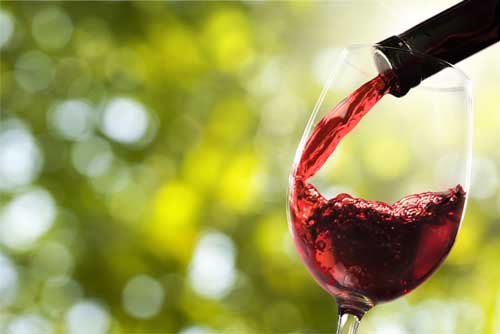Scientists call it the “Goldilocks Zone.”
It’s when too little of something is bad for you and so is too much…but a moderate amount is “just right.”
A major new study shows that’s the case with alcohol and Alzheimer’s disease.
Previous research has come to conflicting conclusions about how much you should drink for optimal brain health.
Scientists at the French National Institute of Health and Medical Research recently set out to settle the question.1
The researchers followed the health of more than 9,000 people for more than 30 years. The subjects were part of a national study program on the impact of behaviors and biological factors on health in old age.
When the study started 1985, the participants were between 35 and 55. When it ended, they were all over 65 or had died. During the study, the participants were asked about their alcohol consumption.
The researchers divided the subjects into three groups:
- Alcohol abstainers
- Moderate drinkers (the equivalent of six pints of beer or six 6-ounce glasses of wine each week)
- Heavier drinkers (more than six beers or glasses of wines per week)
The ‘Goldilocks Zone’ for Alcohol
At the end of the study, scientists checked to see how many people in each group had been diagnosed with dementia. In all, 397 of the 9,087 participants had suffered dementia. Their average age of diagnosis was 76.2
Non-drinkers and heavier drinkers were the most likely to suffer brain problems. Moderate drinkers had the lowest risk.
Teetotalers were 47% more likely to be diagnosed with dementia than moderate drinkers.
Among heavier drinkers, researchers found the risk increased by the amount of alcohol they consumed.
For every additional three drinks over six per week, their risk of dementia increased 17%. So a person consuming 12 drinks total a week had a 34% greater chance of dementia than a moderate drinker.
The study did not differentiate between men and women. It was published recently in the British Medical Journal.
Dr. Sevil Yasar is an associate professor of medicine at Johns Hopkins School of Medicine in Baltimore. She wrote an editorial that accompanied the study.
Moderate alcohol consumption “may benefit brain health,” she said. And the study warned that “excessive alcohol consumption is a risk factor for dementia.”
Researchers did not encourage non-drinkers to start drinking to beat dementia because of the risk of alcoholism.
You May Not Always Drink Wine, But When You Do…Drink This
Since the study was done in Britain, the researchers measured beer servings in pints (16 ounces). That is the standard serving size in the U.K.3
In the U.S., beer often comes in 12-ounce servings. So six pints of beer per week is the equivalent of eight standard American beers.
But previous studies have shown that wine may be the healthiest choice. Not only will drinking it in moderation help you prevent dementia, but it has other health benefits, too.
It is linked to better heart health, and lower stroke and cancer risk. Studies have shown it also contributes to increased longevity.
Most of red wine’s health benefits come from phenol compounds called procyanidins. White wines contain far less of them.
The red wine highest in procyanidins is Madiran. It’s made in the southwest of France, primarily from the tannat grape. Madiran (not to be confused with Madeira, a usually sweet wine) is dry and robust.
It is great with steak. It’s somewhat obscure, but most big wine shops carry it.
If you can’t find it, go for cabernet sauvignon. It is also high in healthy procyanidins. It is widely available.
A general rule of thumb: The darker the wine, the richer it is in procyanidins.
Editor’s Note: If you are worried about Alzheimer’s, there is something else you should know…
The decades’ worth of research on one natural herb is impressive to say the least. And Big Pharma knows it… They’re trying to turn this extract into a drug. Go here to get all the details.
Like this Article? Forward this article here or Share on Facebook.
References:
1 https://www.eurekalert.org/pub_releases/2018-08/b-blt073018.php
2 https://consumer.healthday.com/general-health-information-16/misc-alcohol-news-13/moderate-drinking-may-be-a-brain-buffer-736406.html
3 https://www.drinkaware.co.uk/alcohol-facts/alcoholic-drinks-units/latest-uk-alcohol-unit-guidance/

